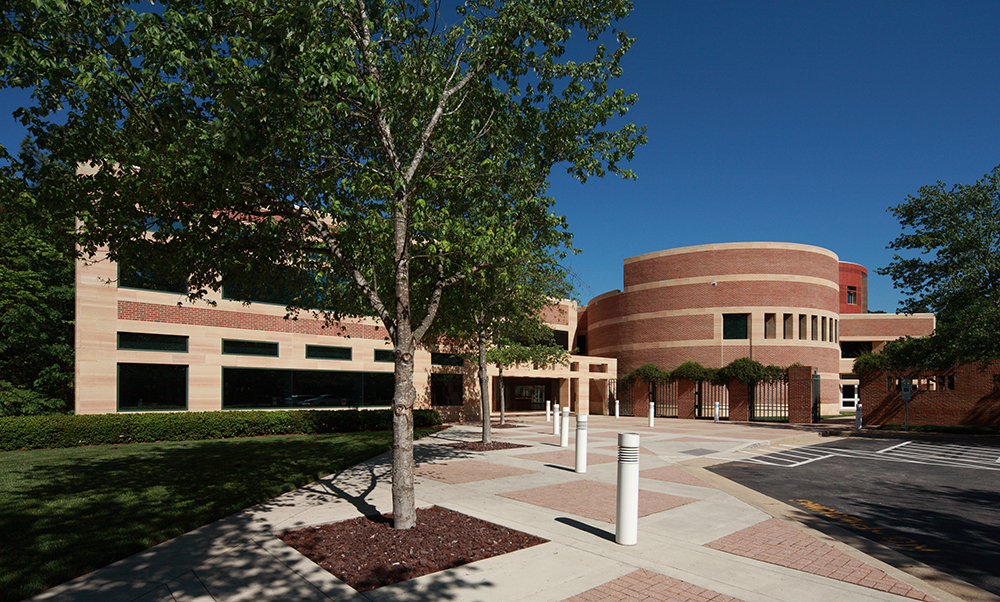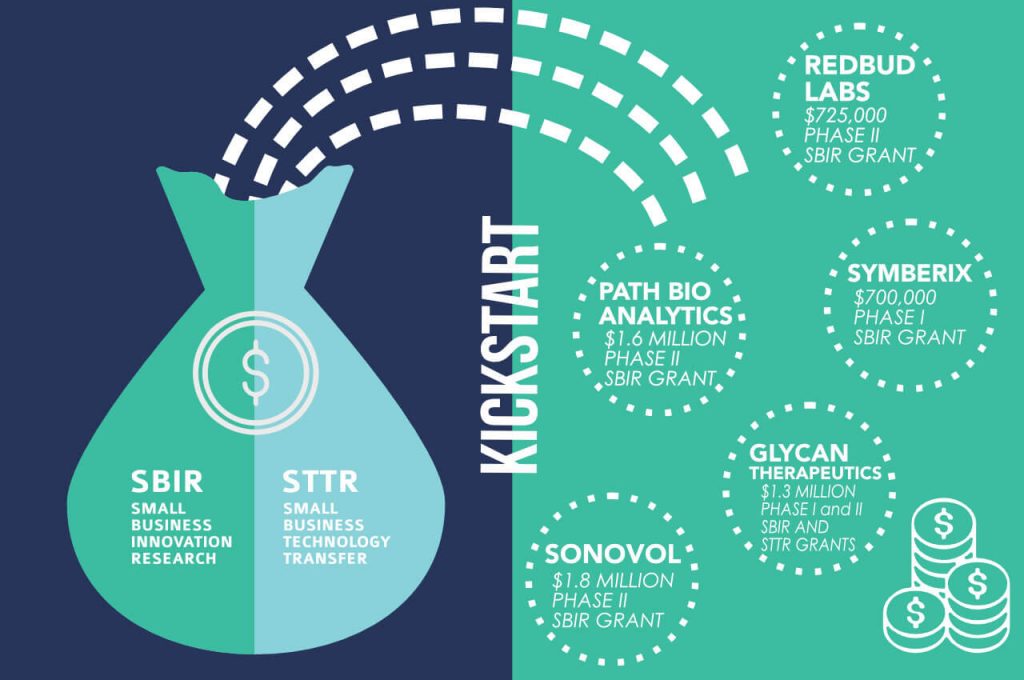


For faculty who are launching a university-born startup, on-campus funding sources are critical first steps on what can feel like a winding path toward success. But these avenues will only take them so far, so fast. Once faculty founders develop their ideas and technologies, build successful prototypes and validate the market potential, they quickly have to look beyond their own campuses. Their ability to grow and ultimately go to market means learning to navigate a much wider funding ecosystem. Knowing what options exist at the regional, state and national levels – and successfully positioning themselves to take advantage of them – means the difference between ventures that struggle and those that take root and thrive.
“The seed funding that faculty founders receive from on-campus sources is vital – and it’s just the beginning of their journey,” said Judith Cone, vice chancellor for innovation, entrepreneurship and economic development. “Faculty startups start to gain even greater traction once they’re mature enough to compete for larger government and private funding opportunities beyond their own universities.”
Similar to the on-campus funding sources, numerous foundations, associations and commercial enterprises support startups with funding that they distribute through a variety of awards and competitions. These often have specific areas of focus such as biomedical, technological or social innovations, with examples including the Triangle Health Innovation Challenge and the What Matters Innovation Award offered by the Triangle Community Foundation.

At the NC BioTechnology Center, several loans are available for life sciences startups, including a Company Inception Loan ($75,000 max), a Small Business Research Loan ($250,000 max) and a Strategic Growth Loan ($500,000 max). This private, non-profit organization in RTP has offices located throughout the state. It connects researchers, companies, investors and entrepreneurs – while also providing a variety of grants for universities:
● Biotechnology Innovation Grants that support studies at North Carolina research institutions designed to bring early-stage university life science inventions to market. ($100,000 maximum).
● Institutional Development Grants provide core equipment that will be used by multiple faculty members ($200,000 maximum).
● The Pfizer-NCBiotech Distinguished Postdoctoral Fellowship in Gene Therapy is a competitive award that fund two-year fellowships for early-career scientists to work gene therapy labs at North Carolina universities.
● Technology Enhancement Grants help university technology transfer offices support research and other commercial activities that help prepare technologies to for license.
Many startups, including UNC spinouts Sandbar Oyster Company, Redbud Labs and Altis Biosystems, have also benefitted from another key option at the state level: NC IDEA. This foundation offers grants and programs that help entrepreneurs at all stages of their development. Specific NC IDEA funding opportunities and programs include:
● NC IDEA SEED, which provides $50,000 in non-dilutive funding that supports business activities to validate target markets, reduce risk associated with early stage companies and help startups grow and scale.
● NC IDEA SOAR, which supports female-led businesses by helping them overcome gap-funding challenges to pursue equity-backed capital.
● NC IDEA LABS, an intensive program for founders who are working on an idea or product that needs to be validated through customer discovery.
In addition, large corporations see the benefits of working with university affiliated startups and offer sponsored research opportunities, giving them a level of access to the research and innovations coming out of universities and, ultimately, benefiting consumers.
Higher up the chain in the funding ecosystem are traditional research grants provided by the federal government, including Small Business Innovation Research (SBIR) and Small Business Technology Transfer (STTR) grants. However, most early startups don’t have the experience in writing competitive grant applications needed to secure this type of funding.
KickStart has helped increase the SBIR/STTR win rate by holding mock review sessions. They evaluate the grant applications before they’re submitted and also provide support through external consultants who help to develop the grant and the budget.
“We find that providing faculty with targeted support throughout the SBIR/STTR application process is essential,” says Don Rose. “By tapping into the experience available at the university and through external partnerships, we see faculty startups that are better prepared to make the most compelling cases for major federal funding.”

The result has been an impressive list of SBIR and STTR grants awarded to UNC startups:
● Path BioAnalytics recently secured a $1.6 million Phase II SBIR grant from NIH to support the development of novel precision medicine tools. The company is world-class epithelial cell culture technology with cutting-edge analytics to identify effective drugs for the treatment of cystic fibrosis and other diseases. Carolina alumni John Mellnik founded the company in 2012.
● Redbud Labs is directing its $725,000 Phase II SBIR grant from NSF to improve health care in fundamental ways. Its technology enables medical testing from a small amount of blood, which could significantly impact global neonatal and pediatric health care, particularly in developing countries, and expand the market for blood containers. Redbud Labs was co-founded by UNC professor Richard Superfine and UNC alumni Richard Spero in 2011.
● SonoVol is using its $1.8 million Phase II SBIR grant from NIH to continue development for its novel imaging technology that allows researchers to assess tumors, including their size, location, morphology and vascular density. A spinout of UNC, SonoVol’s proprietary technology, Acoustic Angiography, was developed in co-founder Dr. Paul Dayton’s lab within the UNC-NCSU Joint Department of Biomedical Engineering.
● Symberix received more than $700,000 in Phase I SBIR grants to fund the research of new drugs that safely and selectively inhibit a bacterial enzyme responsible for a number of dose-limiting gastrointestinal side effects of certain pain and cancer medications. Symberix was founded by Matthew Redinbo, a Kenan Distinguished Professor of chemistry, biochemistry and microbiology.
● Glycan Therapeutics received more than $1.3 million in Phase II and Phase II SBIR/STTR grants to develop a platform technology using chemoenzymatic synthesis of heparin and heparin like compounds. Applications include anticoagulants, cancer and diagnostic markers. Glycan was founded by Jian Liu, a Distinguished Professor at the UNC Eshelman School of Pharmacy.
A new federal funding opportunity comes from the new health security accelerator at First Flight Venture Center, which is located in Research Triangle Park. First Flight was selected as one of eight accelerators in the country by the U.S. Department of Health and Human Services to drive innovation in lifesaving medical technologies. Initial funding opportunities include awards of up to $749,000 for projects aimed at solving the biggest national health security threats through the development of innovative technologies.
Universities around the state monitor these kinds of emerging opportunities so they can make necessary adjustments to their programs and best position startups for funding of all types, including venture capital investments.
With funding support and mentorship from programs like KickStart that bolster early-stage business operations, the most successful of these growing enterprises find that they are ready to work with the growing number of investment funds and venture capital firms located across the Research Triangle region and state: Rex Health Ventures, Hatteras Venture Partners, IDEA Fund Partners, RTP Capital Associates, Pappas Ventures, and Golden Pine Ventures, to name a few.
Always in flux, the startup funding landscape around the country, and particularly in university-rich regions like North Carolina, requires that university-affiliated startups and support programs remain vigilant and ready to adapt to market shifts. New opportunities emerge, while others change. And in an area where leading research universities find innovative ways to work with one another – along with state and federal agencies and private industry partners – North Carolina appears poised to remain ahead of the curve on the startup and economic development scene.
This article is part three in a three-part series that explores the funding landscape for startups founded by university faculty. Read part one and part two.